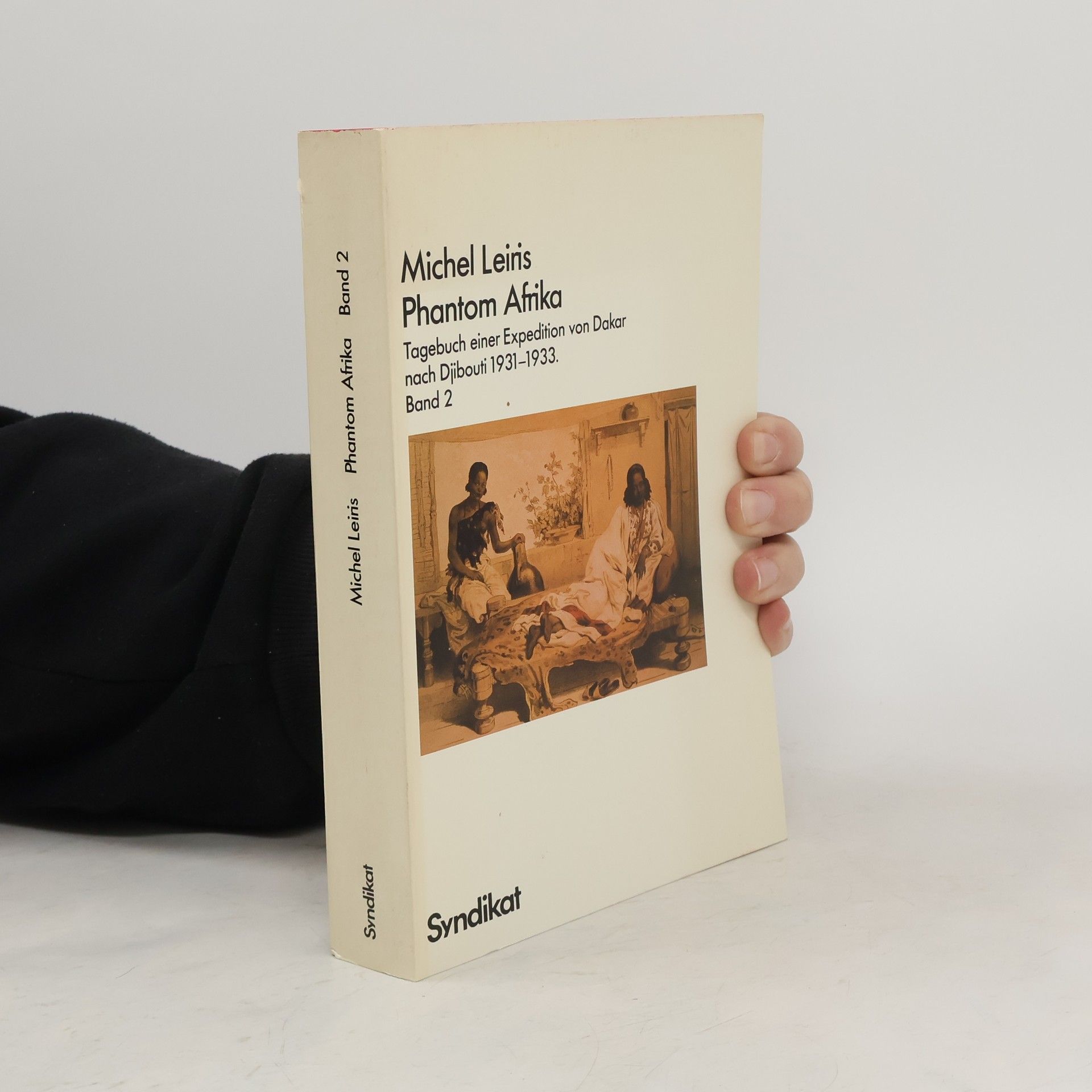Scraps
- 248 pages
- 9 hours of reading
The second volume of Michel Leiris's hugely influential four-volume autobiographical essay, available to English-language readers in a brilliant and sensitive translation by Lydia Davis
Michel Leiris was a writer whose work emerged from the surrealist movement, exploring the depths of human experience with an ethnographer's keen eye. His contributions to surrealist publications and his early novel demonstrated a commitment to avant-garde expression and introspection. Later, he collaborated with other significant literary figures, continuing to probe the boundaries of literature and self-discovery. His writing invites readers into a complex exploration of consciousness and the human condition.







The second volume of Michel Leiris's hugely influential four-volume autobiographical essay, available to English-language readers in a brilliant and sensitive translation by Lydia Davis
A dazzling translation by Lydia Davis of the first volume of Michel Leiris's masterwork, perhaps the most important French autobiographical enterprise of the twentieth century
The fourth and final volume of Michel Leiris’s renowned autobiography, now available in English for the first time, translated by Richard Sieburth
A major publishing event: the third volume of Michel Leiris's renowned autobiography, now available in English for the first time in a brilliant translation by Lydia Davis
Die durchgesehene und erweiterte Neuausgabe von Michel Leiris' "L’Afrique fantôme" beleuchtet koloniale Raubkunst und die Praktiken ethnografischer Aneignung in Afrika. Leiris schildert seine Erfahrungen und Widersprüche als Surrealist und Ethnologe, wodurch er zum Antikolonialisten wird. Die Neuausgabe enthält auch seine Briefe an seine Frau.
Im Spiegel der Tauromachie gleitet Leiris Beschreibung der Corrida, des Stierkampfes in der Arena, zwanglos in eine Schilderung nahezu heiliger Zeremonien über, in die Beschwörung der mit Verderbnis sich paarenden Schönheit, in einen Versuch über den Tod und die Liebe.
Qui sont ces gens que nous appelons « les sauvages » ? Comment réagissent-ils par rapport à nous ? Sommes-nous certains de les « voir » et de les comprendre ? Là réside l'essentiel de la recherche ethnologique de Michel Leiris. Elle le conduit à s'interroger sur le colonialisme et sur le racisme, sur le sens de la culture, à montrer la pluralité des civilisations. Comme chez Montaigne, la quête d'un homme total se situe au centre de son œuvre littéraire. Ses écrits ethnologiques en sont l'indispensable complément.
Jede Verkleidung abwerfen und als Materialien nur wirkliche Tatsachen zulassen, so lautete die Regel, die ich mir erwählt hatte. In dieser Richtung war bereits durch Bretons Nadja ein Weg gebahnt worden. "§Mannesalter erschien in den dreißiger Jahre in Frankreich, als Michel Leiris, Ethonologe und Schriftsteller (1901-1990), schon nicht mehr zum engeren Kreis der Surrealisten gehörte. Seine Autobiographie ist ein Klassiker der Bekenntnisliteratur, worin sich "Kindheitserinnerungen, Erzählungen wirklicher Ereignisse, Träume und tatsächlich erlebte Eindrücke in einer Art von surrealistischer Collage überschneiden".